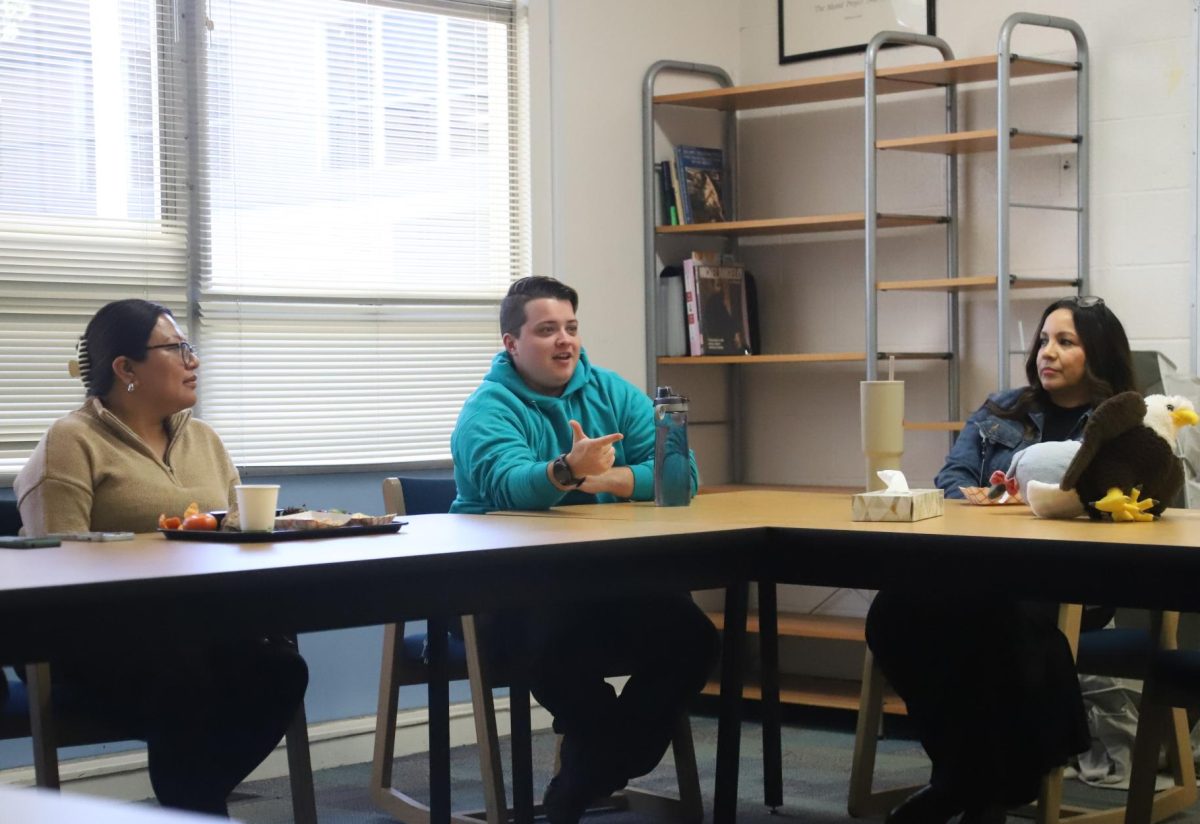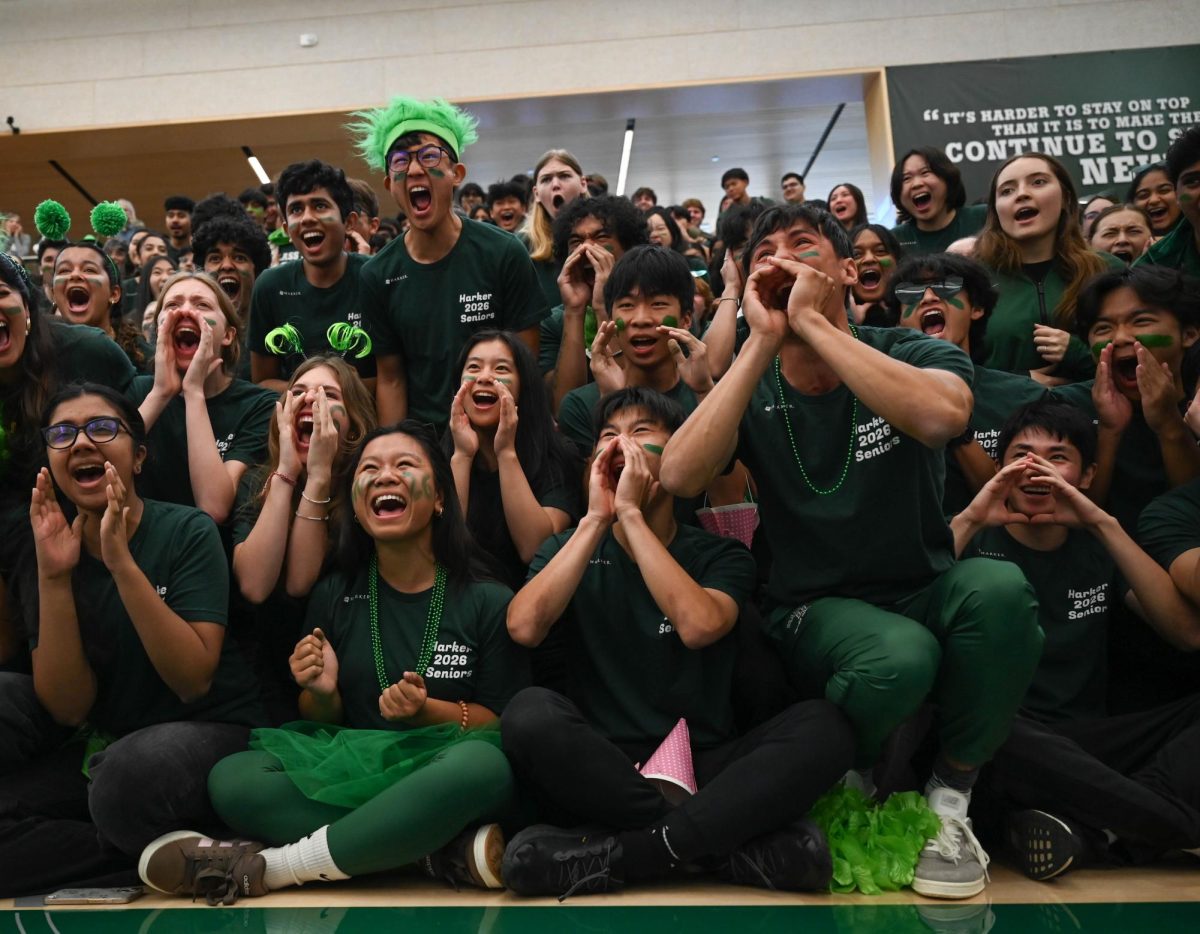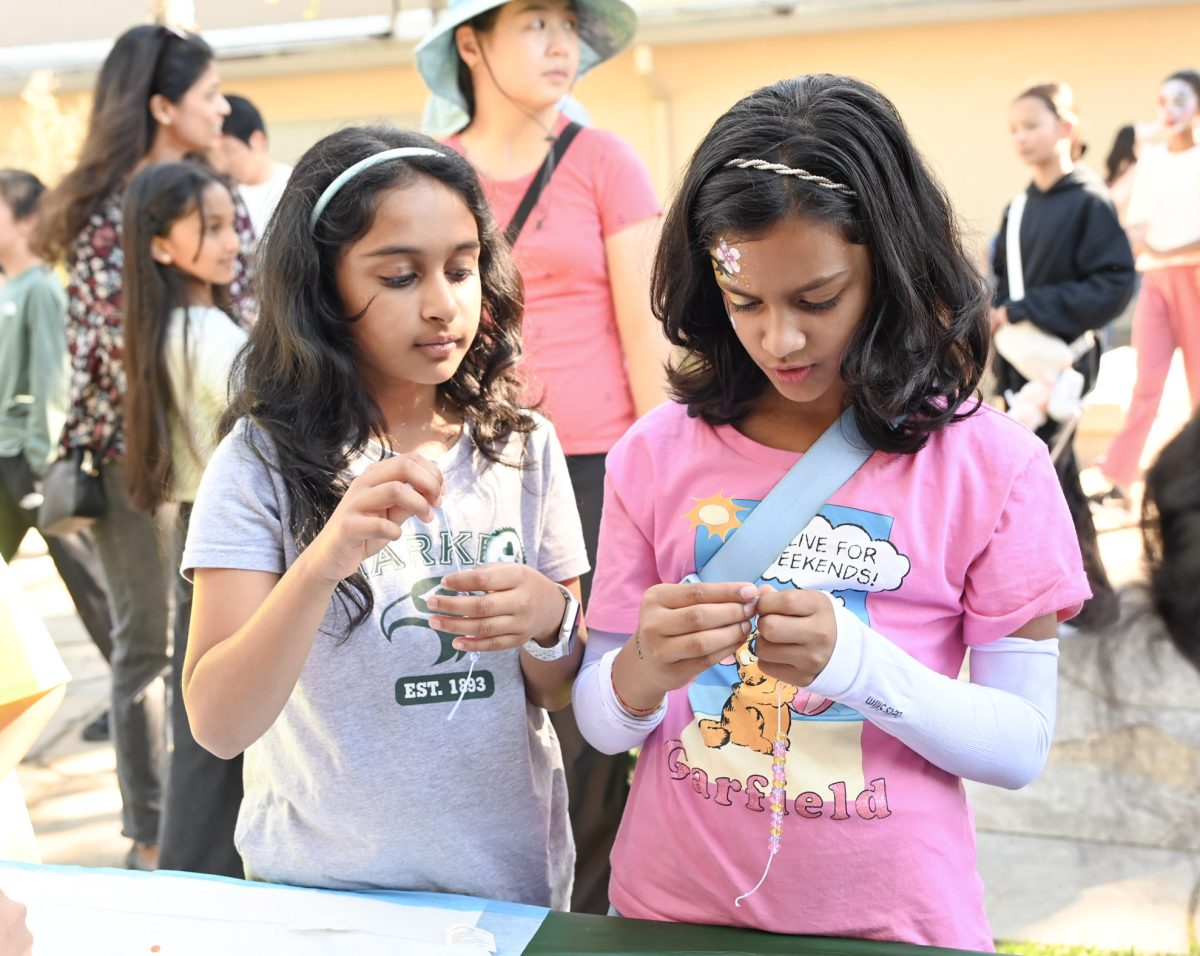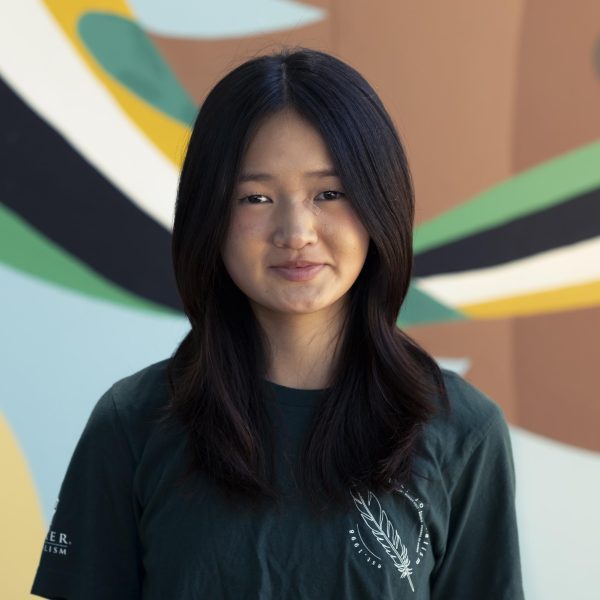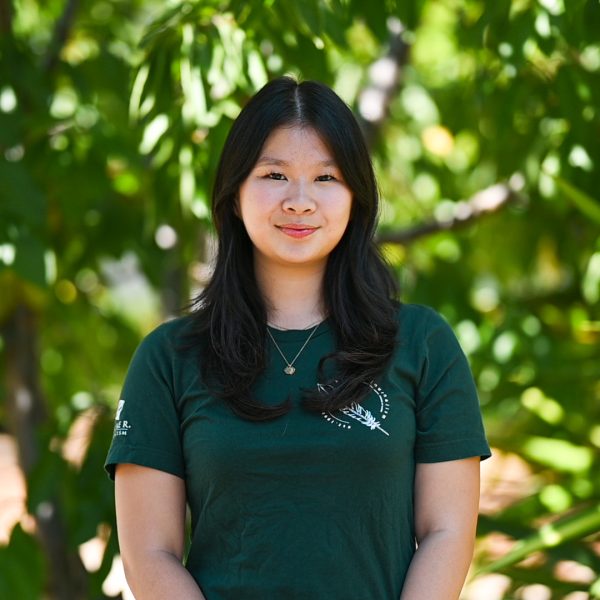Upper school staff discussed their distinct academic journeys at the First-Generation and Community College Attendees panel discussion during the Nov. 8 lunch period in English teacher Susanne Salhab’s classroom.
Organized by the DEI committee, the event aimed to highlight the socioeconomic diversity and differences in opportunities of the Harker faculty. The event featured panelists from Harker’s staff, who shared their individual experiences growing up in socioeconomic backgrounds disparate from most Harker students and illuminated their individual pathways through higher education. The panelists included math teacher Jeanette Fernandez, history and social science teacher Carol Green, learning, innovation and design director Diane Main, assistant to upper school head Michelle Martinez, assistant technical director Aren Olson, librarian Amy Pelman and math teacher Bradley Stoll.
Salhab, who moderated the panel, first invited the panelists to talk about their educational journey. Fernandez began the discussion and shared her experience as the first generation in her family to attend college at West Valley Community College.
“I had a great time at the community college,” Fernandez said. “At the time, my sister was in a sorority at a four-year college, and I had about the same amount of fun as she had. I was involved in clubs, and there was a lot that happened on campus that made it feel like I was still in school.”
Other panelists shared their own experiences of attending community and state colleges due to economic restraints. Since most of the panelists paid for their own education, many had to work long hours or resort to other methods, such as switching schools or joining the military, to earn money. Stoll dropped out after one year in college and joined the military for six years. He later attended California State University, East Bay and credits his success there to his time in service.
“When I started my accounting major, I couldn’t get motivated because I knew I was going to quit,” Stoll said. “So I walked into the recruiting office and asked, ‘Can I join the Navy?’ The military allowed me to grow up and mature quite a bit. When I got out, I realized that I actually can learn; I just have to study.”
Aside from economic struggles, panelists also encountered other unique obstacles during their college journey. Martinez faced the challenge of being undocumented while making a decision for the next step after high school.
“When I found out I was undocumented in high school, I went down a path of ‘what am I going to do?’” Martinez said. “I didn’t have the ability to go to school or the ability to work legally, so I took the route that my classmates who were in the same situation [took], which was community college. There, I was also able to choose what I wanted to study and change my major three or four times.”
The panelists shared stories that highlighted their resilience and flexibility throughout their educational pursuits. Upper school librarian Meredith Cranston attended the event as an audience member and especially enjoyed hearing the diverse stories from her fellow faculty members.
“I hadn’t heard these stories from most of them, so it was really interesting to hear how all of my colleagues got to where they are,” Cranston said. “We are all now successful adults, no matter if we decided to go straight from high school to a four-year college or take some time and join the military.”
Panel attendee Felix Chen (11) also appreciated hearing the stories from some of his own teachers. Considering the diverse college journeys of the faculty members, Felix recognizes that Harker students often experience pressure to conform to a predetermined educational route.
“The panel highlighted the fact that there are many different paths to success, and there are many different definitions of success,” Felix said. “Not everyone needs to take the same path. At Harker, far too often we lose sight of the reality that everyone is different. Everyone will have their own journey through life, so they should be encouraged to choose the right path for themselves.”
The event concluded with questions from audience members. For students who did not attend the event, Main reiterates the broader message from the panel discussion.
“Things don’t always go the way you think they’re going to go,” Main said. “Things change, you change, or your circumstances change. But that doesn’t close doors, it just opens different doors. College is not always exactly what you think it’s going to be, and if you open yourself up to that being okay, then you can handle whatever life throws at you.”
Correction: A previous version of this article incorrectly described Fernandez as a first-generation immigrant instead of the first generation in her family to attend college. This article has been updated on Nov. 30, 2023, to correct this error.




![LALC Vice President of External Affairs Raeanne Li (11) explains the International Phonetic Alphabet to attendees. "We decided to have more fun topics this year instead of just talking about the same things every year so our older members can also [enjoy],” Raeanne said.](https://harkeraquila.com/wp-content/uploads/2025/10/DSC_4627-1200x795.jpg)


















![“[Building nerf blasters] became this outlet of creativity for me that hasn't been matched by anything else. The process [of] making a build complete to your desire is such a painstakingly difficult process, but I've had to learn from [the skills needed from] soldering to proper painting. There's so many different options for everything, if you think about it, it exists. The best part is [that] if it doesn't exist, you can build it yourself," Ishaan Parate said.](https://harkeraquila.com/wp-content/uploads/2022/08/DSC_8149-900x604.jpg)




![“When I came into high school, I was ready to be a follower. But DECA was a game changer for me. It helped me overcome my fear of public speaking, and it's played such a major role in who I've become today. To be able to successfully lead a chapter of 150 students, an officer team and be one of the upperclassmen I once really admired is something I'm [really] proud of,” Anvitha Tummala ('21) said.](https://harkeraquila.com/wp-content/uploads/2021/07/Screen-Shot-2021-07-25-at-9.50.05-AM-900x594.png)







![“I think getting up in the morning and having a sense of purpose [is exciting]. I think without a certain amount of drive, life is kind of obsolete and mundane, and I think having that every single day is what makes each day unique and kind of makes life exciting,” Neymika Jain (12) said.](https://harkeraquila.com/wp-content/uploads/2017/06/Screen-Shot-2017-06-03-at-4.54.16-PM.png)








![“My slogan is ‘slow feet, don’t eat, and I’m hungry.’ You need to run fast to get where you are–you aren't going to get those championships if you aren't fast,” Angel Cervantes (12) said. “I want to do well in school on my tests and in track and win championships for my team. I live by that, [and] I can do that anywhere: in the classroom or on the field.”](https://harkeraquila.com/wp-content/uploads/2018/06/DSC5146-900x601.jpg)
![“[Volleyball has] taught me how to fall correctly, and another thing it taught is that you don’t have to be the best at something to be good at it. If you just hit the ball in a smart way, then it still scores points and you’re good at it. You could be a background player and still make a much bigger impact on the team than you would think,” Anya Gert (’20) said.](https://harkeraquila.com/wp-content/uploads/2020/06/AnnaGert_JinTuan_HoHPhotoEdited-600x900.jpeg)

![“I'm not nearly there yet, but [my confidence has] definitely been getting better since I was pretty shy and timid coming into Harker my freshman year. I know that there's a lot of people that are really confident in what they do, and I really admire them. Everyone's so driven and that has really pushed me to kind of try to find my own place in high school and be more confident,” Alyssa Huang (’20) said.](https://harkeraquila.com/wp-content/uploads/2020/06/AlyssaHuang_EmilyChen_HoHPhoto-900x749.jpeg)



